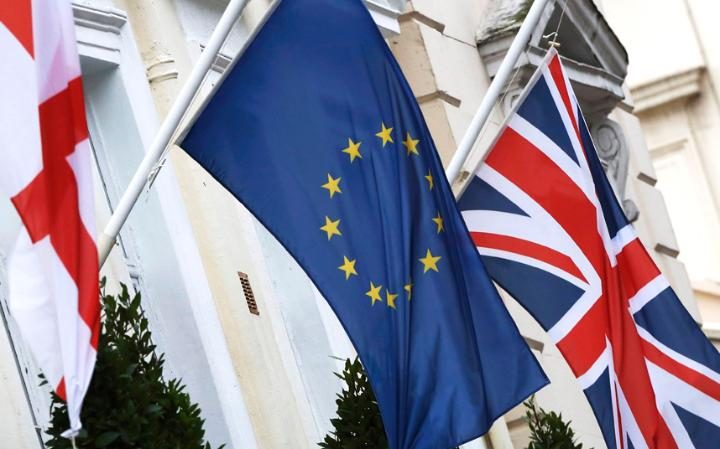
More than anything, that amorphous thing we call “the market” hates surprises and just about always greets them with a negative reaction. The news of the United Kingdom’s vote to leave the European Union (“Brexit”) certainly qualifies as a surprise, especially with the rhetoric and polls heading into the historic vote suggesting a close vote, but nonetheless a deciding vote, to “remain.” In the immediate aftermath of the announced results, global “risk” markets (global equities, high-yield bonds, oil) sharply declined, and “safe harbor” assets such as U.S. Treasuries, gold and the U.S. dollar rallied. While this is a somewhat unprecedented situation and no one knows how it will unfold, the following reflects our initial thoughts on the subject.
First, in the short term, the markets will likely remain volatile as investors wrestle with the uncertainty of Great Britain’s political situation while seeking answers to questions such as, “What will the EU offer in terms of help with the exit strategy (or even possibly incentives to remain a part of the union)?” and, maybe most importantly, “What does the actual exit look like (timing, trade and immigration agreements, free movement, etc.)?”
British Prime Minister David Cameron announced his resignation early Friday morning, and the EU membership has demanded that Britain activate Article 50 talks “as soon as possible.” Article 50 of the Treaty on European Union sets out the procedure to be followed if a member state decides to leave the EU, and starts a two-year running clock. After that time elapses, the treaties that govern EU membership no longer apply. In other words, this is likely going to be a long process with minimal clarity in the short term as to the ultimate implications.
Longer term, one probable result is a smaller, slower-growing U.K. economy. Migration was one of the biggest issues in the negotiations between the EU and Great Britain, and if the result of Brexit is a clamp down on migration from the EU, the economy could shrink; debt-to-GDP could increase, resulting potentially in higher taxes or lower spending as an offset.
A quick informal survey of friends and colleagues in London indicated that most voters lacked sufficient details on these types of issues to make a well-informed decision. In fact, Google reported that in the hours following the close of voting, there was a significant uptick in searches emanating from within the U.K. relating to “the implications of a Brexit” and “what the EU is.”
These uncertainties are another headwind for growth in a period where Europe, even more so than the United States, has struggled to recover from the financial crisis. One also has to contemplate the longer-term impacts on the EU. Will other countries consider withdrawal or would the EU even consider ejecting member countries? It seems that the union is at an inflection point, with leaders faced with the task of doing a better job of aligning membership both philosophically and from a policy perspective. We would also guess that the EU will be a difficult negotiating partner for Great Britain, if only to discourage other countries from following suit.
Great Britain represents approximately 13% of the EU population and 15% of economic output. Several commentaries have drawn the comparison of a state or collection of states leaving the United States. California represents approximately 12% of the U.S. population and a combination of New York, New Jersey and Pennsylvania represents 13%. We feel this is a poor comparison since the EU isn’t a country and Article 50 specifically contemplated the possibility that a country would leave. Additionally, Britain has its own currency, financial markets, government, military and even a central bank—and no one is suggesting a shooting war over the exit.
In no particular order, here are some additional thoughts surrounding Thursday’s vote and results:
- Overall, despite the immediate negative reaction by many markets, the economic and political impact won’t be known for years to come.
- The vote was simply a public referendum and the actual exit has not happened yet. There is a minimum of two years to figure out topics such as trade agreements, free movement, etc. More than likely the exit will take longer, given how intertwined Britain is with the EU.
- This could be helpful for other countries such as Italy, Spain and Portugal who may need to follow a path to leave; it also may result in the strengthening of other nationalist movements (e.g., Netherlands and France). These countries may need their own currency and the ability to weaken it. If there was a market for each of these currencies, the pricing of risk could be more efficient.
- Economists are already cutting forecasts for Britain’s economic growth and increasing inflation forecasts; however, the greatest risk is more than likely unstable British politics. This is already reflected in David Cameron’s resignation and Scotland’s first minister indicating that a second referendum to leave the U.K. is highly likely.
- Given U.S. Federal Reserve Chair Janet Yellen’s reference to the Brexit as a factor in the decision against raising rates at the June Federal Open Market Committee meeting, the probability of an increase in the federal funds rate this year should decline significantly.
- The yen is one of the few currencies strengthening against the U.S. dollar today, which adds to headaches for Japanese policymakers and places pressure on the Bank of Japan to expand monetary stimulus after already adopting a negative rate policy.
- There are large potential ramifications for the banking system in Europe. Uncertainty is high for European banks and is reflected in generally weak share prices.
- Despite the negative immediate reaction, business will continue in Europe. Companies will still produce goods and services and employ workers.
- Global central banks have indicated a willingness and ability to extend liquidity if conditions warrant it.
- Polls and markets had this referendum result wrong. People were frustrated with establishment and status quo. This reminds us that anything is possible, including the potential outcomes of the U.S. elections later this year.
The initial reactions in the financial markets this morning are more negative for international equities than those in the U.S. Globally, about 52% of the world’s market capitalization is outside of the U.S. Our recommended equity allocation is closer to 25% to 35% for a couple of reasons. First, a company’s domicile is less important than sources of revenue, and many U.S. companies (particularly large cap) have a global footprint; and second, most of our clients are paid in, and transact in, U.S. currency. Another benefit of this underweight relative to world allocations can be seen in times of crisis. Investors value the relative safety, transparency and size of the U.S. markets and view them as a safe haven during volatile periods.
In closing, we strongly believe one of the attributes of a good investor is the ability to be resistant to panic and euphoria. Domestic equities (as measured by the S&P 500) are down 2.4% as we write this, albeit from near-record high levels. Stocks historically have had the highest returns of liquid financial markets, but in order to realize those higher returns one must be willing to accept periods of weakness and volatility like we are experiencing today. As always, these types of events are opportune times to review one’s ability to withstand tough market environments—and if the answer is “no,” address long-term asset allocation stances and what they mean in terms of lifetime financial goals. We fully anticipate that today is going to be a difficult day for equities, but it is our belief that the Brexit vote does not portend a collapse in global markets. Today’s emotions will give way to a more reasoned evaluation of the long-term ramifications of Brexit and, ultimately, equity investors will refocus on the long-term drivers of equities—namely earnings growth and valuations.



